Want a more sustainable society? We need to talk about capitalism, argues CBS researcher
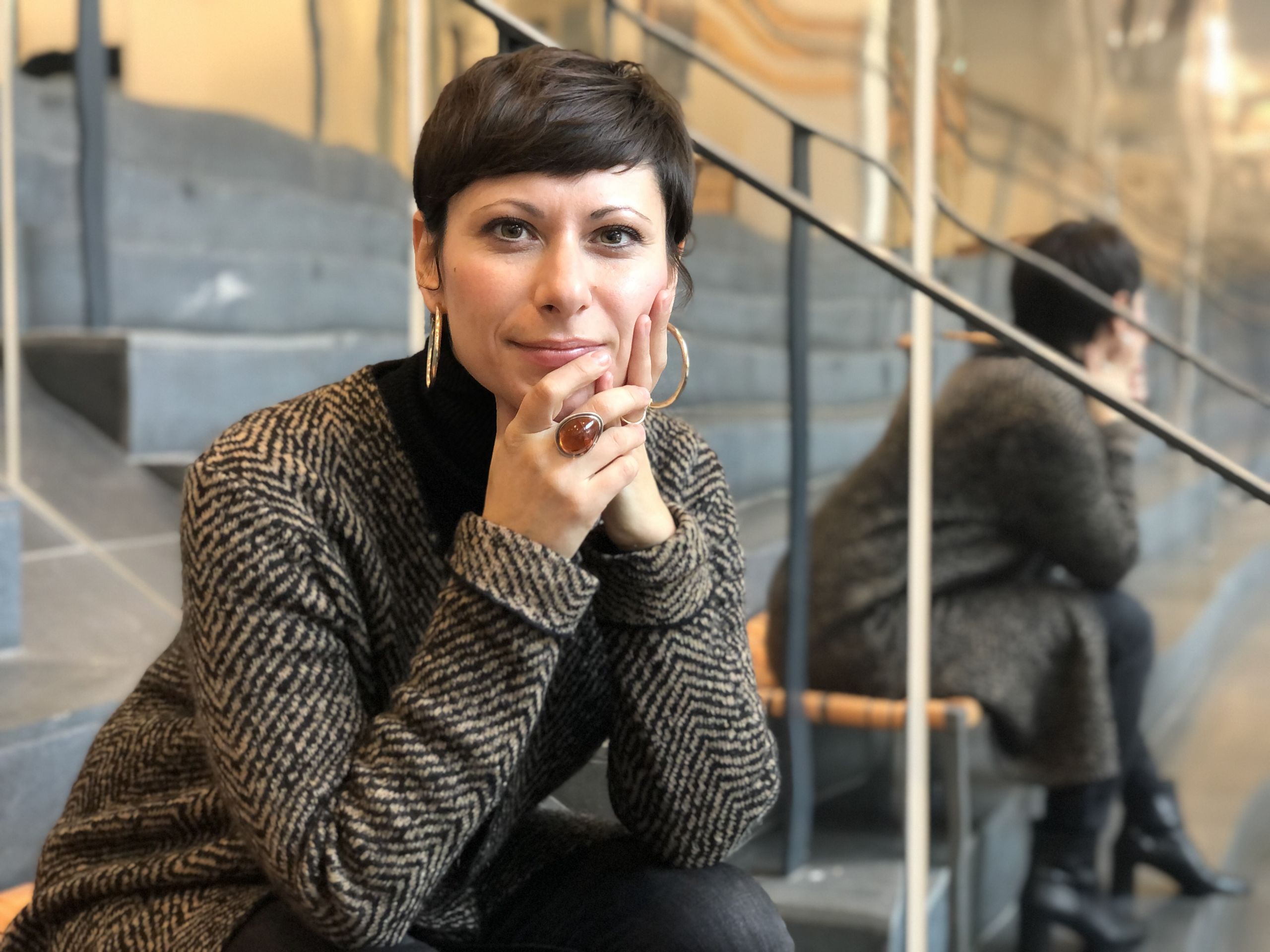
Lara Monticelli, Assistant Professor at the Department of Management, Politics and Philosophy, wants us to talk about capitalism and maybe come up with an alternative to the economic system. (Photo: Anne M. Lykkegaard)
Like a chameleon, capitalism has changed over the years. Now, we are standing on the verge of a new crisis, and either capitalism will change again, or be replaced by something else, argues CBS researcher, Lara Monticelli. She has established a world-wide network of researchers who are trying to explore and rethink capitalism – and we might want to look to India for living proof that “real utopias” are possible.
In Assistant Professor Lara Monticelli’s office hangs a picture of two Asian women on a street in Venice. They look distressed, thigh-deep in flood water, desperately trying to save their new purchases from Louis Vuitton.
“I really like this photo. It vividly depicts why it’s easier to imagine the end of the world than the end of capitalism,” she says.
Amazing photo of Chinese tourists battling through Venice floods with their luxury goods https://t.co/8ZxLXBKW7l熱爆話題/253791/厲害了-威尼斯大水浸-擋不住大媽買名牌 pic.twitter.com/atNyUrz3A9
— Austin Ramzy (@austinramzy) November 3, 2018
And although it can be hard to imagine the end of capitalism, Lara Monticelli from the Department of Management, Politics and Philosophy wants to discuss potential alternatives. Because, as she sees it, we are living in an era when capitalism, propelled by the financial crisis a decade ago, naturally needs to change or be replaced if we are to make our societies more sustainable and face the current climate crisis.
“There is a growing sense that we are at a critical juncture in which difficult and important decisions must be made. And the issue of climate change mitigation and adaptation has added a new layer of complexity and urgency to the discussion,” she says and continues:
“The big question right now is whether capitalism, which has been the dominant socio-economic system for the past five centuries of human history, should be re-thought, reformed or fundamentally transformed.”

It is exactly this question that Lara Monticelli explores with the academic research network “Alternatives to Capitalism”, which she founded with a colleague from the University of Leicester, back in 2016 and that now counts almost 400 members from universities all over the world.
But before Lara Monticelli reveals what capitalism might look like in the future – because there are real-life examples of alternatives – we need to dive deeper into how we got to a place where capitalism has become a swearword. We must also understand how, at various points, capitalism has changed its spots.
From the cradle to the grave
So just to get things straight. What does capitalism even mean? Well, if you ask Google, everyone on the first page agrees that it is an economic system characterized by three main features: private ownership of the assets used in production processes, work exchanged for salaries, and profit-driven enterprises.
Most historians date the birth of capitalism to somewhere in mid-17th century England, an age of expanding mercantile empires. Since then, capitalism has successfully evolved and changed color like a chameleon over the centuries to state-led capitalism after the two World Wars until today by adjusting and adapting to new realities in the wake of crises. We are currently experiencing what American philosopher Nancy Fraser calls, ‘financialized capitalism’.
We shouldn’t forget that while capitalism has indeed improved living standards, it has also increased inequality within societies and between societies
Lara Monticelli
When the most recent financial crisis hit in 2008 – 2009, the debate on the future or the end of capitalism was on the agenda once again.
“In the wake of the recent financial crisis, the social consequences catalyzed a vibrant debate, both in the public arena and among academics, about the future of capitalism. Grassroots activists, such as Occupy Wall Street, pointed at growing social and economic inequalities, while the word ‘capitalism’ enjoyed a revival and suddenly hit the front covers of major newspapers, magazines and books, and was even featured in artistic exhibitions such as the one at the Museum of Capitalism in Oakland in the U.S.,” says Lara Monticelli.
And so, the debate has spread to our time. Today it’s no longer the Occupy Wall Street movement demonstrating against the 1 percent, but young people spearheaded by Greta Thunberg who argue that continuous growth and the focus on endless profit accumulation are harming our planet. Their voice is now being heard by many.
For example, the editor of the Financial Times launched a “new agenda” entitled ‘Capitalism: Time for a Reset’ in September 2019. And the opening editorial criticizes corporations for their narrow focus on shareholder value and profit maximization, and business leaders are urged to consider their impact on stakeholders such as the organizations involved in their supply chains, their employees, and the natural resources they deploy, explains Lara Monticelli.
“Such openly critical statements in the Financial Times would have been unthinkable just a few a years ago. Similarly, think tanks and business gurus are talking about ‘conscious capitalism’ or ‘capitalism with a purpose’. Consultancy and accounting companies are also studying ways to estimate the value of a company based on their ‘ESG impact’ which stand for Environment, Society, and Governance. As Bob Dylan famously sang more than 50 years ago, ‘The times they are changing’,” she says.
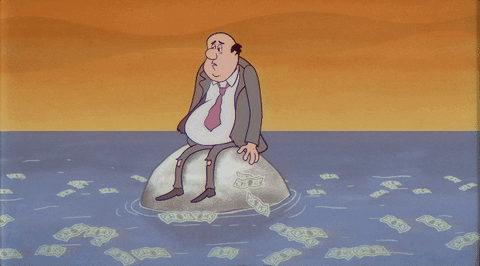
Although it may seem as if this is the first time that people are speaking their minds about capitalism and how it is not necessarily desirable in its current form, Lara Monticelli explains that critical voices have been around pretty much since the 19th century.
“At this point, though, it is worth stressing that these streams of critical thought have existed in various forms since the dawn of modern capitalism: just think of the Luddite movement protesting against the introduction of machinery and automation in the nascent textile industry of 19th century, or the think tank Club of Rome talking about “limits to growth” in the 1970s,” she says.
The good, the bad, capitalism
Although different sectors, social movements, political parties, and influential voices argue that capitalism must change, Lara Monticelli agrees that we also owe a lot to capitalism. Without it, we wouldn’t have had some of the most dramatic improvements in living standards in history. Capitalism has successfully created an array of new jobs, pulled many people out of poverty, and increased the middle class. But…
“We shouldn’t forget that while capitalism has indeed improved living standards, it has also increased inequality within societies and between societies. The rich are getting even richer, and the poor are getting even poorer, while the middle class in Europe and in the United States is slowly being eroded,” she says and continues:
“Wealth has also been generated through socially and environmentally unsustainable supply chains that rely heavily on the exploitation of natural resources and cheap labor. When we think about the benefits of capitalism, it is therefore always important to keep in mind: “Who does the “we” refer to exactly?”

At this point, I can’t stop thinking whether capitalism at some point turned evil. Can capitalism, in its present form, support our life on planet Earth or is it eroding it? And is it a built-in flaw of the economic system, or has the heated debate more to do with a few “bad apples” managing the economy?
Lara Monticelli quickly declares that it has nothing to do with being good or evil.
“It’s about historical evolution. Every time we have faced a global crisis, such as wars or financial crises, capitalism has been able to fix itself by adjusting to and co-opting the grievances and critiques that emerge. However, this crisis, unlike the previous ones, is threatening the possibility of future life on this planet. This is why I think the times we live in are so interesting because there is so much at stake,” she says.
Alternatives to capitalism? Indian eco-villages
So, what options do we have for changing capitalism? Are there any quick-fix solutions out there that can simply replace capitalism?
Yes and no.
Part of Lara Monticelli’s reply revolves around eco-villages. More specifically, her current project ‘EcoLabSS – Ecovillages as Laboratories of Sustainability and Social Change’ focuses on studying and comparing two ecological communities in Italy and Denmark as they experiment with alternative ways of living. For example, some experiment with alternative currencies and horizontal and participatory decisional methods, others with sustainable living.
This is also known as ‘interstitial change’, as the ecovillages stimulate developments in societal niches that can potentially create large-scale transformation, explains Lara Monticelli.
“One fascinating example of interstitial change is Auroville, in the state of Tamil Nadu, India, which I visited in 2017. Three thousand people live there, including a lot of families and children from 85 different countries. The community was founded in 1968, with the aim of becoming the ‘city of the future’. The inhabitants built it over the course of fifty years using bio-materials and sustainable techniques long before anyone was talking about climate change,” she says and continues:
“Geographically, the community is located in a former desert and now, thanks to an incredible green regeneration project that involved planting millions of trees, the area has become a natural oasis and the birds and animals have returned. Auroville uses a community currency that encourages the inhabitants to buy commodities from local producers and stores. Unknown to many, Auroville also has a sort of basic-income scheme that allows everyone who lives there to be able to reach a minimum standard of living.”
We are embedded in capitalism, so if we want to change it, we must begin by agreeing that this is our common goal
Lara Monticelli
Auroville is the biggest city of its kind in the world, according to Lara Monticelli, but it still only has about 3,000 inhabitants. If we are to create alternatives to capitalism that can rise to the challenges we currently face, they must be global – or at least have support from the biggest countries in the world – in order to generate the change that is needed.
So, how do we scale-up change?
“We need symbiotic changes. Global and systemic societal change can’t be generated from Auroville-like initiatives alone. We also need change at institutional level. Auroville and other eco-villages give concrete and living proof of alternatives at micro level, but we need to rethink the way our societies and economics function at the macro level. They can’t expand without help from governments and politicians,” she says.
Researchers also have a role to play
And this is also where researchers enter the stage. The research network that Lara Monticelli has created aims to gather people from around the globe to take a critical look at capitalism and explore the alternatives’ pros and cons. And hopefully, this can contribute to the changes happening, says Lara Monticelli.
“Researchers are in the middle of the debate, as we can help make sure that our chosen direction of travel will truly deliver social and environmental justice and a better future for all. While some claim that researchers are just meant to observe, I think we should strive to have an impact. Just think about it, many important debates are often started by concerned researchers,” she says.
She explains that the debate about capitalism and post-capitalistic societies has flourished over the past ten years.
“On the one hand, some scholars believe that democratizing technologies and scaling up robotization will free people from the need to work and thereby reduce our impact on the environment. Others are much more skeptical towards technology and advocate a more profound change in one of the main features of contemporary capitalism: endless growth,” she says and continues:
“In fact, there is an established and vibrant community of scholars and activists that is promoting the idea of degrowth, which was recently discussed at a European Parliament conference.”
No matter what, changing capitalism will not happen overnight. It will take a great deal of effort.
“We are embedded in capitalism, so if we want to change it, we must begin by agreeing that this is our common goal,” says Lara Monticelli.







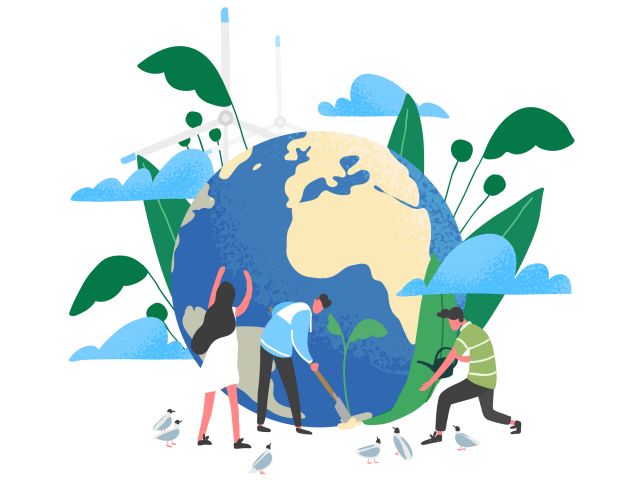
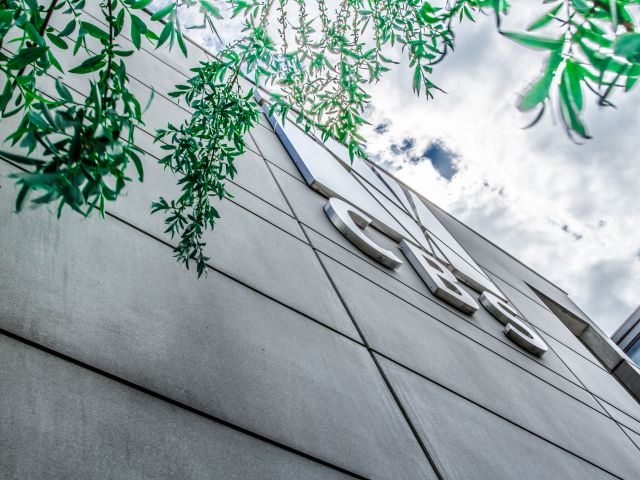
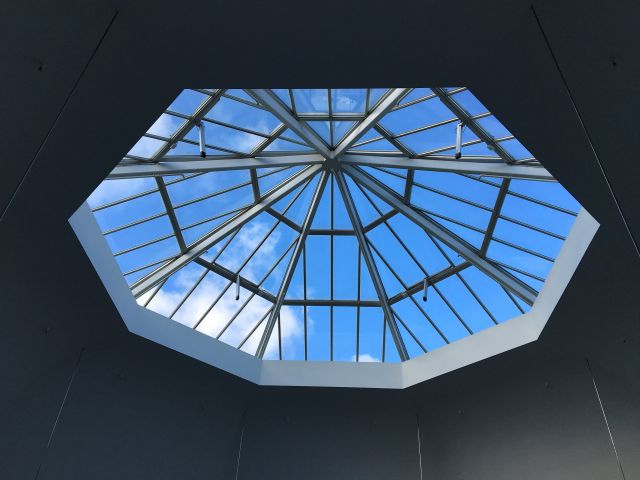
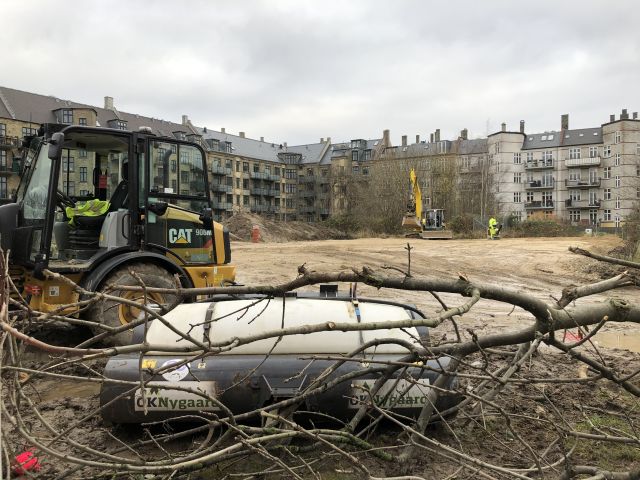




























































































































Auroville is just one of thousands of ecovillges across the globe, and is a member of the Global Ecovillage Network (GEN), which started in Denmark in 1991. (See www. gen.ecovillage)